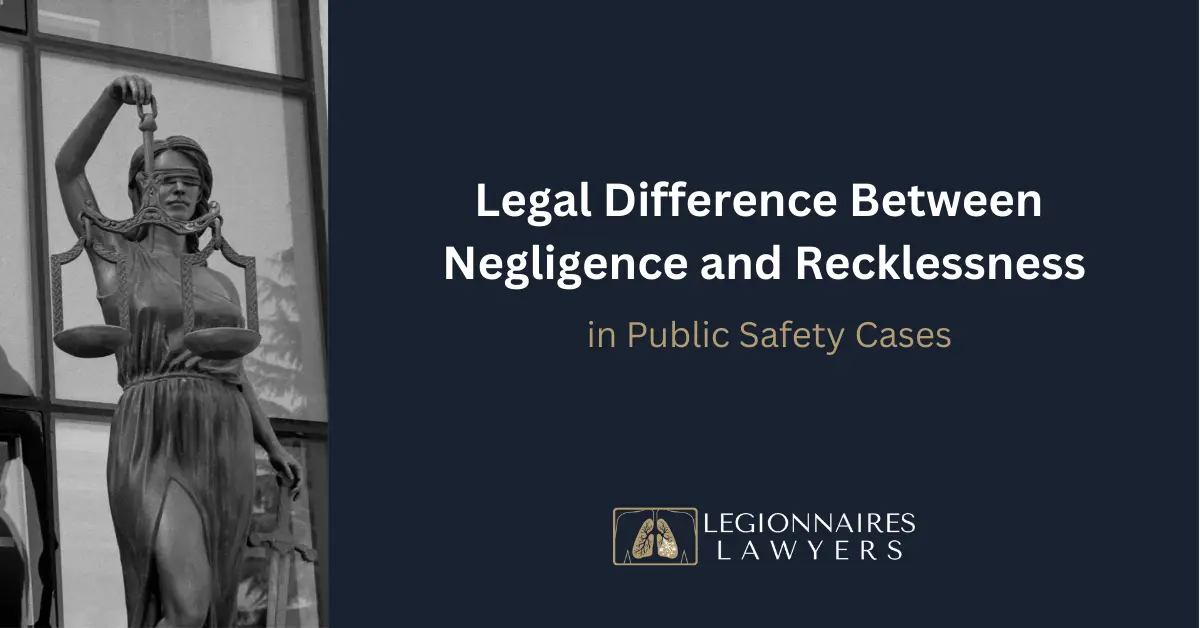
In public safety cases, the key difference between negligence and recklessness can shape liability and compensation. Negligence is failing to exercise reasonable care, while recklessness shows a willful disregard for others’ safety. Recklessness often brings harsher legal consequences, including punitive damages. This article breaks down these concepts and their impact on your case.
What Is Negligence? Understanding the Basics
Negligence is the failure to act with reasonable care, leading to harm or injury. In public safety cases, this might be a distracted driver causing an accident or a property owner neglecting maintenance. To prove negligence, four elements must be shown:
- Duty of Care: The defendant had a responsibility to act safely.
- Breach of Duty: That duty was not met.
- Causation: The breach directly caused harm.
- Damages: The plaintiff suffered losses (physical, emotional, or financial).
Negligence usually results in compensatory damages—like medical bills or lost wages—and does not require proof of malicious intent.
What Is Recklessness? The Severe Consequences of Disregarding Safety
Recklessness is more severe than negligence and refers to a deliberate and conscious disregard for a substantial risk of harm to others.
For example, driving under the influence or purposefully ignoring safety protocols can be considered reckless behavior. Unlike negligence, which is often unintentional, recklessness involves knowing the risks and choosing to ignore them. Reckless behavior can lead to both compensatory and punitive damages.
Key Differences Between Negligence and Recklessness in Public Safety Cases
The primary difference between negligence and recklessness is the intent behind the actions. Here’s a comparison of the two:
- Level of Care: Negligence is a failure to act with reasonable care, whereas recklessness involves a willful disregard for safety.
- State of Mind: Negligence is usually unintentional, while recklessness is a conscious decision to take risks.
- Available Damages: In cases of negligence, only compensatory damages are awarded. In recklessness cases, punitive damages may also apply, meant to punish the defendant and prevent similar misconduct.
Understanding these distinctions can influence the compensation a victim receives, as reckless behavior may warrant higher penalties and more extensive damages.
Why the Difference Matters in Public Safety Lawsuits
Understanding whether a public safety incident was caused by negligence or recklessness can have serious implications for the plaintiff’s case. In negligence cases, the goal is to make the victim whole again through compensatory damages.
However, in recklessness cases, the defendant’s actions are seen as more egregious, which can result in punitive damages in addition to compensatory damages.
- Negligence Cases: These typically involve accidents resulting from carelessness or a failure to follow safety protocols. Compensation aims to cover medical bills, lost wages, and pain and suffering.
- Recklessness Cases: Reckless behavior can lead to significantly higher financial compensation, including punitive damages, due to the intentional disregard for others’ safety.
How Negligence and Recklessness Affect Public Safety Compensation
In public safety cases, whether the defendant’s behavior was negligent or reckless directly impacts the compensation awarded to the victim. While negligence results in compensation for actual harm, recklessness opens the door to additional damages, including punitive damages meant to punish the wrongdoer for gross misconduct. If recklessness is proven, it can significantly increase the financial recovery in a case.
Consult with Legionnaires Lawyers if You’ve Been Diagnosed with Legionnaires’ Disease
If you or a loved one developed Legionnaires’ disease due to negligence or recklessness, consulting an experienced Legionnaires’ disease lawyer is essential. The right legal guidance can help prove liability, pursue compensation, and navigate complex public safety cases. Understanding negligence vs. recklessness is key—especially with serious health risks like Legionnaires’ disease—so don’t hesitate to contact a lawyer to protect your rights.


